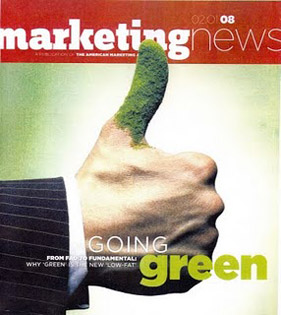Who are the green clients who will buy $trillions of sustainable tourism products?
Friday, 25 Jul, 2010
0

They already buy hundreds of billions of dollars worth of other green products in the US alone. To imagine this market size globally just multiply by 10
The LOHAS market is a major marketing phenomenon in the US, hardly dented by the credit crunch, the demand is still there for green products.
The clients who are currently fuelling the US ecotourism movement also buy other products and if you want to address them with your travel and tourism offer, you will find them buying:
- Personal Health Products: Natural, organic products, Nutritional products Integrative Health Care, Dietary supplements, Mind Body Spirit products – US Market- over $100 billion
- Natural Lifestyles: Indoor & outdoor furnishings, Organic cleaning supplies, Compact flourescent lights, Social Change, Philanthropy, Apparel – US Market – over $10 billion
- Green Building: Home certification, Energy Star Appliances, Sustainable Flooring, Renewable Energy Systems ,Wood Alternatives – US Market- over $50 billion
- Alternative Transportation: Hybrid Vehicles, Biodiesel Fuel, Car Sharing Programs – US Market – over $10billion
And, as far as green travel is concerned?
A recent survey of eco-conscious travelers came to the following conclusions:
- There are many shades of green. The sustainable travel market is not a solid block of green, but a spectrum. It includes business travelers who reuse towels in a hotel room, and voluntourists who collect garbage on the slopes of Mount Everest. There is a market need for all.
- Green Travellers want to ‘Walk the Walk’ but practical benefits like price, location, quality and brand are still the primary influences in their travel purchasing decisions.
- There is a low tolerance for high green premiums. Pure air, natural, non-toxic carpeting and healthy, organic linens are creature comforts that could compel customers who would pay a premium for sustainability.
- Travel industry’s sustainable practices “need work” From hotels to cruise lines to restaurants, leading travel and tourism businesses are highlighting environmentally friendly practices as part of their commitment to sustainability. But how meaningful are those practices? As far as the public is concerned there is still much skepticism.
- The green leadership vacuum – room for differentiation. Only one brand seems to have a clear, green identity: Costa Rica, whose national parks and biological diversity have made it a perennial favorite with eco-travelers. This is a good time for travel providers to grab market share.
- Green scepticism; the need for certification. As the sustainable travel industry matures, widely recognized, trusted certification is needed to establish standards for green travel. Over 40% of respondents looked for 3rd party certification to verify that a travel supplier is truly “environmentally friendly.”
- Business travel, is it unsustainable? Although businesses are “talking the talk” when it comes to corporate social responsibility and commitment to the environment. Studies indicate that more and more companies are making environmentally responsible travel part of their mission But that is not translating into dollars spent on green hotels and carbon offsets for jet travel.
- The most sustainable sector is the MICE industry. Event planners, perhaps more than any other segment, are trying to tread more lightly on the planet. 72% of respondents in the event-planning industry said their companies explicitly work to incorporate “green meeting” options into events
- Voluntourism is still a green shoot. Although voluntourism has emerged as the “hot” new form of travel. The survey confirms what other studies have indicated: at this point there is more interest and expectation than participation.
- Travellers are influenced by each other – not advertising. The CMI Green survey demonstrated unequivocally that peer influence — “word of mouth from friends” — has the greatest influence on consumers (48% said very influential) when planning a vacation. “Traveler reviews on websites and blogs” were “very influential” to half as many respondents. Trusting peers is not only a very human response, it’s a Web 2.0/social media response.
Sources: CMI Green Survey; LOHAS
Valere Tjolle
Valere
Have your say Cancel reply
Most Read
TRAINING & COMPETITION
 United Kingdom
United Kingdom United States
United States Asia Pacific
Asia Pacific












































BA suspending all Heathrow to Abu Dhabi flights
Unexpected wave rocks cruise ship
Report: Cruise guest died after ship lashed in heavy storm
British teen in serious condition after paraglider collision
JetBlue scraps London Gatwick flights